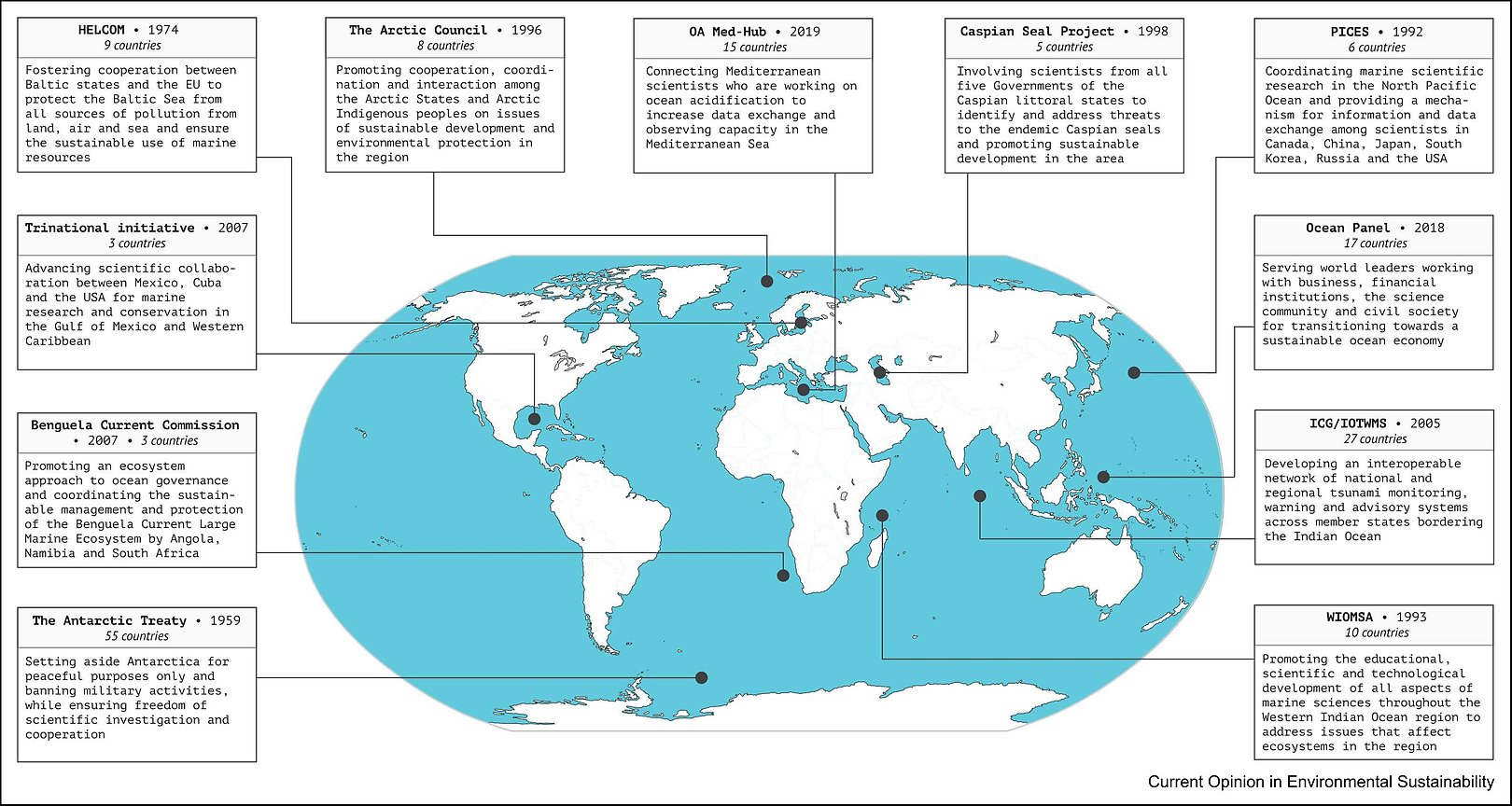Sustainability and peace
How ocean science can contribute to peace

Antarctica is an example of how peaceful collaboration and research go hand in hand. Photo: Sicha69 via Canva.
In a world of conflict, can the ocean be a place of peace? Yes, says a new review paper, and concludes that the UN Ocean Decade has an important role to play
- We are in the Blue Acceleration, a period of rapidly increasing intensity of ocean use with a growing potential for conflict
- This challenge underscores the need to explore the potential of ocean science and management as instruments for mitigating conflict and building peace
- In the light of this, the UN Ocean Decade should explicitly embed peace as one of its intended outcomes
We are in the first years of the United Nations Decade of Ocean Science for Sustainable Development 2021–2030 (the ‘Ocean Decade’). The Decade is intended to stimulate science and knowledge generation “for the ocean we want”, but does not consider how the ocean can contribute to mitigating conflict and building peace. This is a missed opportunity according to a new review paper published in Current Opinion in Environmental Sustainability.
Potential for conflict – and peace
“We are in a period of unprecedented scale, diversity and intensity of marine resource use that we call the Blue Acceleration, when the ocean has become a dramatically more crowded space with a greater potential for conflict,” says Centre researcher Robert Blasiak, lead author of the paper.
The paper is written together with Centre colleagues: Jean-Baptiste Jouffray, Albert Norström, Cibele Queiroz and Henrik Österblom, as well as Colette Wabnitz from Stanford University. By “tapping into the environmental peacebuilding literature” the six researchers come to the conclusion that the Ocean Decade has a considerable untapped potential to become an instrument of peace.
The ocean has become a dramatically more crowded space with a greater potential for conflict.
Robert Blasiak, lead author
The paper starts out by going all the way back to 1945, when UNESCO was established in the aftermath of World War 2.
“The destruction and disasters of war had created new clarity about ideals of understanding, collaboration and common purpose, ideals famously enshrined in the first lines of UNESCO's Constitution,” says Blasiak.
The six researchers continue by exploring everything from a previous Ocean Decade (“International Decade of Ocean Exploration”, 1971-1980) and the Cold War (1947-1990) to the recent Russian invasion of Ukraine and the 2023 High Seas Treaty.
 Zoom image
Zoom imageExamples of how ocean science has contributed to multistate cooperation in conflict-prone settings. Click to zoom in.
Environmental peacebuilding
This results in a list of examples of when ocean science has contributed to multistate cooperation in conflict-prone settings. Among the examples, catalogued in the paper and its supplementary materials, are The Antarctic Treaty (1959), Helsinki Commission for the Baltic Sea (1974), and the Trinational Initiative (2007).
Adding an eighth outcome of the Ocean Decade, namely ‘A Peaceful Ocean’, would be closely aligned with Sustainable Development Goal 16 and the spirit of UNESCO itself.
Robert Blasiak, lead author
Arguing their case, the authors refer to previous studies showing that cooperation on the conservation and protection of nature (a key element of the Ocean Decade agenda) can establish and maintain peaceful relations. They also find evidence in the ocean science and management community for three mechanisms across which environmental peacebuilding is known to occur: (1) facilitating increased cooperation and dialogue across diverse groups; (2) introducing environmental and governance norms that empower and strengthen civil society; and (3) providing access to public services that meet community needs.
Finally, Blasiak and colleagues conclude by proposing that the Ocean Decade implementation plan should be appended to include an eighth intended outcome focused on peace.
“Adding an eighth outcome of the Ocean Decade, namely ‘A Peaceful Ocean’, would be closely aligned with Sustainable Development Goal 16 and the spirit of UNESCO itself,” they write.
Blasiak, R., Jouffray, J.-B., Norström, A., Queiroz, C., Wabnitz, C.C.C. & Österblom, H. 2023. The Ocean Decade as an instrument of peace. Current Opinion in Environmental Sustainability, 64, 101319.
.jpg)







